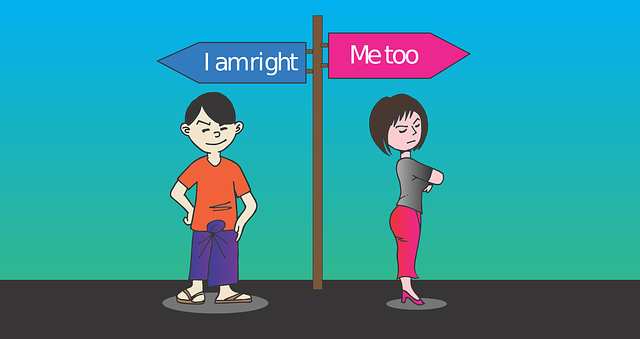
Difficult individuals may be found in every walk of life. Perhaps you, too, can be a difficult personality.
Many people go through periods where they don’t perform up to expectations. If you want to keep in contact with a difficult individual, you’ll need to learn how to cope and negotiate.
Here are some tips to help you deal with difficult people.
Deal with difficult people
1. Give the person a second chance
If you’re dealing with a new worker, it may take time for her or him to adjust to your company’s expectations and policies.
In addition, if you have fired someone who has been given only one chance too many, consider giving this person a second chance.
2. Change the person’s responsibilities
If an individual can’t handle his or her assigned tasks, perhaps you can assign different tasks to the individual.
In addition, if you have a worker who is too shortsighted and only cares about getting a promotion no matter how many people he or she steps on, give him more responsibility.
If this individual fails, then you can deal with him or her accordingly.
3. Be polite
Difficult people often become difficult because everyone else has been rude to them. They respond by acting the same way as everyone else.
Treat these individuals kindly and show an interest in their concerns.
Sometimes all it takes is a friendly smile or an encouraging word to make them change their behavior.
4. Don’t be afraid to discipline
Disciplining difficult people is the only way they will ever learn. If you have an individual who never makes deadlines or misspends company resources, take away his or her ability to do what he or she wants.
For example, if you’re dealing with a worker who is always late, set up a time clock and document this person’s failures.
5. Communicate
As mentioned above, many of the problems you’re having with your difficult people may be solved through good communication.
Listen to their concerns and talk about the issues that are bothering them. They might not want to do their jobs, but they might enjoy the company.
6. Be consistent
Treat all your workers equally. Don’t treat one person better than another or you will create conflict between individuals who used to get along.
If you have a worker who is always late and disrupting everyone else’s efforts, discipline him or her for this behavior just like you would with any other behavior.
7. Understand there is a problem
Many people don’t recognize that they are difficult to work with because everyone else around them allows their behavior to go unchecked.
If you have a hard time dealing with an individual, it’s probably because he or she has been acting inappropriately toward you and others for some time.
It might be time to hire a professional who can deal with your difficult person before you lose more money or have a problem that can’t be solved.
8. Hire the right people
The best way to avoid having a difficult person is to hire the right individual from the start. Check references and do an extensive background check before hiring.
Ask everyone about what it was like to work with this individual. If you have a difficult person working for you, it’s often because you hired the wrong person or didn’t thoroughly check on his or her references.
9. Know when to let go
Not all difficult people can be helped so if your current strategies aren’t working, it might be time to move on.
There is a chance that this individual might get better if he or she changes job responsibilities or leaves the company, but you should also be aware of the possibility that this person will only get worse.
10. Let them go
If you have a difficult person on your hands who’s behavior has not changed over time and it doesn’t seem possible to help this individual, you need to let him or her go.
This is never an easy task, but if you have tried everything with no success, it might be time to cut your losses and move on.
In addition, you will avoid any future problems by getting rid of a difficult person as soon as possible
Characteristics of a difficult person

1. Disrespectful and rude to others
Difficult people often display extremely unprofessional behavior, such as belittling other team members or talking back to their bosses.
They may also lie about the facts and do whatever it takes to get what they want.
2. Constantly blames others for problems
If you have a difficult person who never takes responsibility for his or her own mistakes, this is a sign that things will only get worse.
If you don’t address the blame issue now, no one will want to work with this person as the job progresses.
3. Doesn’t fulfill promises
Your difficult person might be making promises that he or she can’t keep.
If an employee agrees to do something but never gets it done, don’t expect anything to change in the future.
4. Manipulative
Difficult people will do whatever it takes to get ahead and this might include trying to deceive superiors or coworkers. They might try talking behind your back or saying one thing yet doing another.
Their entire goal is getting their own way, but they usually end up creating more problems for themselves.
5. Has a bad attitude
A negative outlook is problematic because it causes everyone around them to be affected. This person might constantly complain about his or her job or coworkers and refuse to see the good in any circumstances.
6. Doesn’t do what he or she is supposed to do
If your difficult person refuses to do what he or she is supposed to be doing, this is a problem that will only get worse. Your team needs to be in sync with one another and everyone should know exactly what their responsibilities are.
7. Does not follow procedures
Procedures might seem unnecessary or time-consuming at times, but they are there to keep everyone on the same page and avoid problems.
If your difficult person doesn’t follow these guidelines, he or she will no doubt create more issues for you and your team.
8. Is disrespectful of other
A difficult person often has a hard time getting along with anyone else at work. He or she might be rude, demeaning or insulting to others, which is not only poor behavior but will also cause team members to avoid working with him or her.
9. Uncooperative
If your difficult person isn’t willing to work as part of a team, this can create major problems for everyone involved. Not only will he or she refuse to cooperate with others but might also try to undercut them when given the opportunity.
10. Acts like he/she knows everything
Difficult people are often arrogant and have an unjustified sense of entitlement.
They will act as if they know it all, even if their knowledge doesn’t extend much beyond what is obtained in school or some other limited situation.
- Related post: Ways To Building Strong And Long-Lasting Connections
- Related post: How to have more skillful communication and solve difficult conversations
Types of difficult people
- The know-it-all
- The bully
- The backstabber
- The silent sufferer
- Mr. reliable ( reliable at the wrong thing and unreliable when you need him to be reliable )
- The people pleaser ( can’t say no to anyone, won’t make any decision or take a stand )
- The waffler ( always changing their minds on decisions they are responsible for )
- The procrastinator ( get’s things done at the last possible minute, interrupts others when they are busy with other tasks in order to ask them what he should be doing )
- The defensive employee ( knows you are trying to help him, will admit his mistakes but the next time up he does it again. Defensive employees often make excuses for their poor performance )
Final Thought
It is important to be aware of the difficult people on your team, but it is equally as important to be able to address them in a professional and respectful way.
If you don’t, things will only get worse. If you don’t address the blame issue now, no one will want to work with this person as the job progresses.



